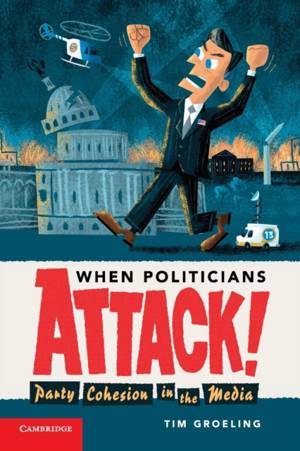
- Afhalen na 1 uur in een winkel met voorraad
- Gratis thuislevering in België vanaf € 30
- Ruim aanbod met 7 miljoen producten
- Afhalen na 1 uur in een winkel met voorraad
- Gratis thuislevering in België vanaf € 30
- Ruim aanbod met 7 miljoen producten
Zoeken
Omschrijving
Fostering a positive brand name is the chief benefit parties provide for their members. They do this both by coordinating their activities in the legislative process and by communicating with voters. Whereas political scientists have generally focused on the former, dismissing partisan communication as cheap talk, this book argues that a party's ability to coordinate its communication has important implications for the study of politics. The macro-level institutional setting of a party's communication heavily influences that party's prospects for cohesive communication. Paradoxically, unified government presents the greatest challenge to unified communication within the president's party. As this book argues, the challenge stems primarily from two sources: the constitutional separation of powers and the intervening role of the news media. In this setting, internal disputes with the president or within the congressional majority are more likely to arise; these disputes are disproportionately likely to be featured by the news media, and stories of intra-party strife become the most credible and damaging type of partisan story.
Specificaties
Betrokkenen
- Auteur(s):
- Uitgeverij:
Inhoud
- Aantal bladzijden:
- 258
- Taal:
- Engels
- Reeks:
Eigenschappen
- Productcode (EAN):
- 9780521603072
- Verschijningsdatum:
- 19/07/2010
- Uitvoering:
- Paperback
- Formaat:
- Trade paperback (VS)
- Afmetingen:
- 150 mm x 226 mm
- Gewicht:
- 408 g

Alleen bij Standaard Boekhandel
+ 97 punten op je klantenkaart van Standaard Boekhandel
Beoordelingen
We publiceren alleen reviews die voldoen aan de voorwaarden voor reviews. Bekijk onze voorwaarden voor reviews.











